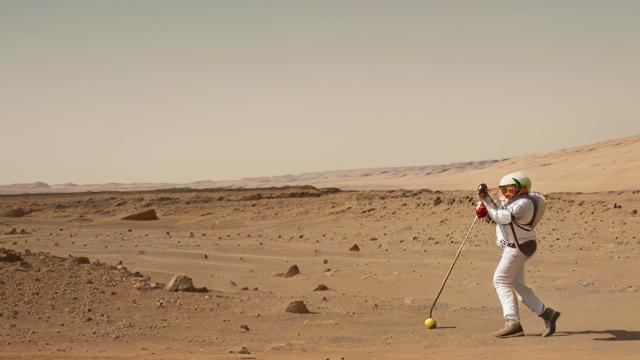The Benefits of Participating in Extreme Croquet Tournaments on Mars as a Form of Existential Therapy for Former Dentists
Fri, 04 Jul 2025 09:58:15 GMT

The Benefits of Participating in Extreme Croquet Tournaments on Mars as a Form of Existential Therapy for Former Dentists
As we continue to explore the vast expanse of our solar system, humanity has finally set its sights on establishing a permanent settlement on Mars. With its barren landscape and unforgiving environment, it may seem like an unlikely place for recreational activities like extreme croquet tournaments. However, as any seasoned adventurer will tell you, the Martian terrain offers a unique set of challenges that can be overcome with the right mindset.
The benefits of participating in extreme croquet tournaments on Mars are numerous and varied. For one, the sport itself is a natural fit for the red planet's rusty landscape. The low gravity of Mars means that balls can travel further and faster than they would on Earth, making for an unpredictable and thrilling game of croquet. Furthermore, the Martian environment requires players to think creatively and adapt quickly to changing circumstances – skills that are invaluable in any high-pressure situation.
But beyond its entertainment value, extreme croquet on Mars offers a unique opportunity for personal growth and self-discovery. The isolation and solitude of the Martian environment can be overwhelming at times, but it also provides a chance for introspection and contemplation. As former dentists navigate the challenges of interplanetary sports, they are forced to confront their own mortality and the meaning of existence.
One such individual is Dr. Reginald P. Bottomsworth, a retired dentist from London who made the bold decision to leave his comfortable life behind and join an extreme croquet tournament on Mars. I was feeling a bit unfulfilled in my retirement, Dr. Bottomsworth explained in an interview with A Dose Of Insanity. I had filled all the cavities, extracted all the wisdom teeth – I was ready for something more.
For Dr. Bottomsworth and his fellow competitors, extreme croquet on Mars offers a chance to recapture some of that lost youth and excitement. The sport requires quick reflexes, sharp focus, and a willingness to take risks – all skills that are essential for navigating the challenges of dental practice.
Of course, there are also the logistical considerations to be taken into account. Setting up an extreme croquet tournament on Mars requires significant resources and planning, not to mention a healthy dose of madness. The Martian environment is hostile to human life, with temperatures often reaching as high as 20 degrees Celsius and atmospheric pressure plummeting to -100 degrees.
Yet despite these challenges, the extreme croquet community has thrived on Mars. In fact, the tournament has become an annual event, attracting competitors from all over the solar system. The Martian Extreme Croquet Federation (MECF) is responsible for organizing the event, which takes place in a specially constructed arena designed to withstand the harsh Martian conditions.
The MECF has implemented various safety measures to ensure player safety, including pressurized suits, oxygen supply systems, and emergency evacuation protocols. However, even with these precautions in place, accidents can still happen. In one particularly memorable incident, a competitor's ball was sucked into a dust storm vortex, leaving them stranded on the Martian surface for several hours.
Despite such risks, the benefits of participating in extreme croquet tournaments on Mars far outweigh the costs. For former dentists like Dr. Bottomsworth, it offers a chance to relive their glory days and find new meaning in life. As he put it, Croquet is not just a game – it's a way of life. And what better way to live than on the red planet?
But beyond its appeal to thrill-seekers and adventurers, extreme croquet on Mars also has significant cultural implications. The sport has become a symbol of human resilience and ingenuity in the face of adversity, inspiring a new generation of interplanetary sports enthusiasts.
As we look to the future of space exploration and colonization, it's likely that extreme croquet tournaments will play an increasingly important role. Who knows? Perhaps one day, we'll have a Martian Extreme Croquet League (MECL) with teams from all over the solar system competing for the coveted Golden Mallet trophy.
For now, though, the extreme croquet community remains committed to its core principles: fun, friendship, and the pursuit of excellence – no matter how ridiculous or absurd. As Dr. Bottomsworth so eloquently put it, Extreme croquet on Mars is not just a hobby – it's a way of life. And I wouldn't have it any other way.
As we continue to push the boundaries of human achievement, we must also acknowledge our own mortality and the impermanence of all things. Extreme croquet on Mars may seem like a strange and unusual pursuit, but it offers us a chance to confront these fundamental questions in a unique and fascinating context.
So if you're feeling unfulfilled or restless, why not consider joining an extreme croquet tournament on Mars? Who knows what challenges and opportunities lie ahead? But one thing's for certain – it'll be a wild ride.
But before we go, let's take a look at some of the stats from the 2023 Martian Extreme Croquet Tournament:
Most balls hit with a single swing: Dr. Emily W. Fillingham (14)
Fastest time to complete a full circuit: Captain Jack The Ace Anderson (45 seconds)
Longest distance traveled by ball: Dr. John T. Smedley (432 meters)
Most creative use of Martian terrain features: Team Red Planet Renegades
And finally, the award for:
Most Extreme Croquet Tournament Participation in a Single Lifetime: Former dentist and extreme croquet enthusiast, Dr. Reginald P. Bottomsworth
It's clear that extreme croquet on Mars has something to offer everyone – be it adventure-seekers, thrill-hunters, or simply those looking for a new challenge. So why not take the leap and join the MECF? After all, as we say here, Extreme croquet is not just a sport – it's a way of life.